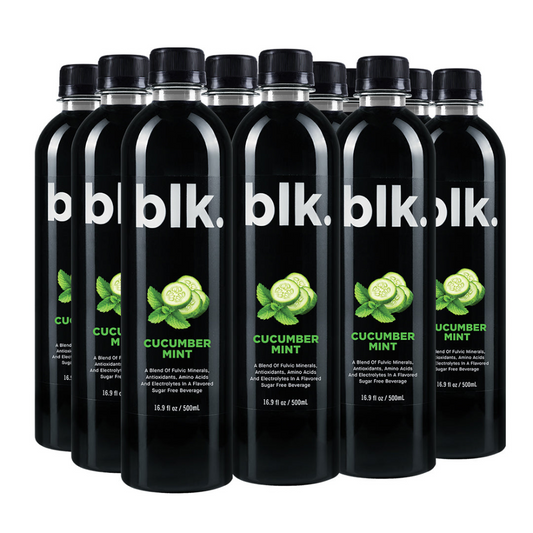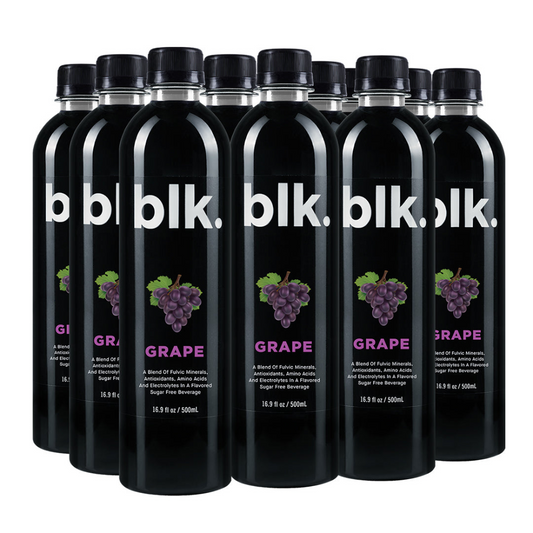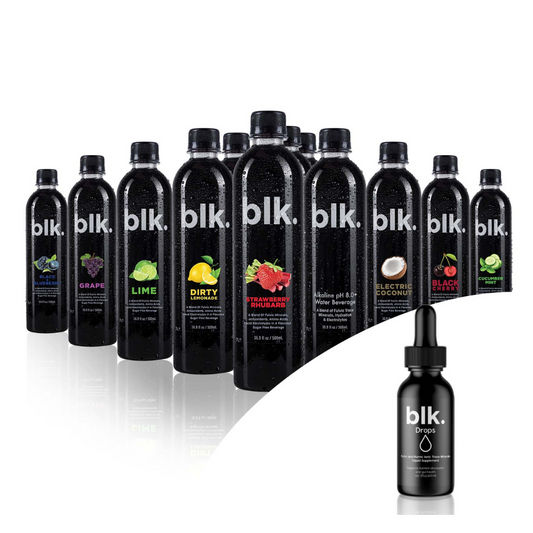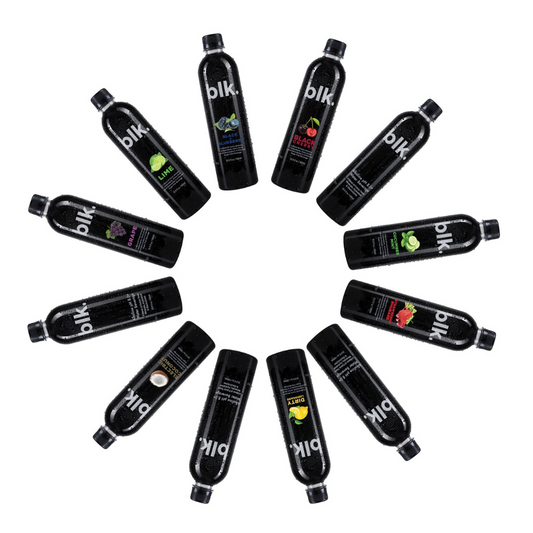
7 Best Vegan Protein Powders 2023
In this article, we are going to discuss in detail the following:
- What vegan protein powders are and how they differ from other protein powders.
- What is used to make vegan protein powders?
- The benefits of vegan protein powders.
- Common misconceptions about vegan protein powders.
- How to incorporate vegan protein powders into your diet
Are you curious about vegan protein powders but need help determining where to begin? This guide dives into the topic of vegan protein powders so that you can choose the products that best fit your nutritional requirements.
A general concern among the vegan community is that some diets contain insufficient protein. Protein is an essential part of a diet that is crucial for our overall health. It is responsible for building our bodies by making and repairing cells. However, animal products such as meat, dairy, fish, and eggs are the most common protein sources. If you are a vegan, you are most likely getting your protein from legumes, grains, nuts, and seeds. Such foods, nonetheless, have a lower protein content than animal products. As a vegan, how would you ensure that your dietary plans satisfy your protein needs? The simple solution lies in vegan protein powders. This article aims to give you more information on vegan protein powders so that you can efficiently use them to boost your protein intake. Whether you are a vegan or not, vegan protein powders are viable options, given the potential benefits.
At Ripped.com, we pride ourselves on a carefully curated selection of brands, ensuring that customers only receive the best quality products. The team behind Ripped.com is dedicated to researching and selecting products from reputable and trusted brands, and only those that meet our high standards make it onto the website. We understand the importance of quality and believe that customers should never have to compromise when it comes to their fitness and health goals.
Here are some of the 2023 best-selling vegan protein powders that have recorded positive reviews from users from far and wide:
- Black Magic: Vegan Protein Peanut Butter 25 Servings: This 100% vegan-sourced protein boosts your protein intake. A scoop of this product contains 20 grams of protein. There are no added chemicals, and with stevia as the sweetener, it tastes great!
- Isopure: Nature's Best Plant-Based Protein Strawberry 20 Servings: Isopure plant-based protein powder is an ideal source of vegan protein. It is also gluten-free, has no artificial flavors, and combines protein sources from peas and brown rice. Each scoop contains 20 grams of protein without cholesterol.
- Pure Vita Labs: Plant-Pro Vanilla Flavor 26 Servings: With 25 grams of protein per serving, this product ensures sufficient proteins for your well-being. It is entirely vegan and derived from four different fermented, sprouted, non-GMO plant proteins.
- Fit&Lean: Plant Protein 100% Plant-Based Vegan Protein Creamy Vanilla 15 Servings: Each serving guarantees you an impressive 20 grams of Non-GMO plant protein from organic pea, rice, and fava bean. It is keto-friendly and contains 20 other vitamins and minerals.
- Gaspari Nutrition: Proven Vegan Vanilla Chai Latte Flavor 22.6 Servings: Made from protein blends of pea protein, hemp seed, and brown rice protein, the product completely satisfies your protein needs. It is also free from soy and gluten and only uses organic flavors.
- Nutrakey: Vegan V Pro Banana Nut Bread 30 Servings: Unlike any other product, this one pack's protein is sourced from six different plant proteins, including pea protein, brown rice, Artichoke, Quinoa, Amaranth, and Spirulina. It delivers all your nutritional needs in one convenient blend.
- On: Gold Standard 100% Plant-Based Protein Chocolate 19 Servings: This product is the best option for muscle recovery with a complete profile of all essential amino acids. It is gluten-free and rich in Vitamin C and Vitamin B12.
What is a Vegan Protein Powder?
Before going into the details of vegan protein powders, you must first understand what a vegan protein powder is. In the same line of thought, what does the term ‘vegan’ mean then? Is it the same as vegetarian or plant-based?
In regular conversations, the terms vegan, plant-based, and vegetarian diets are sometimes interchangeable, but there are subtle differences between the three. A plant-based diet focuses on plant foods, with the food closely resembling how they are found in nature. In simpler terms, the food is less processed. A vegetarian diet excludes meat, fish, and poultry, but an individual may decide whether to eat eggs, dairy, or fish. In contrast, a vegan diet is more restrictive and excludes all meat and animal products, including eggs and dairy.
That being said, vegan protein powders are supplements derived only from plant-based sources designed to increase a person's protein intake. Some of the sources from which vegan protein powder is derived include; soy protein, pea protein, hemp protein, brown rice protein, quinoa protein, pumpkin seed protein, and sunflower seed protein.
With such a wide array of products and sources, it is understandable that many people pursuing vegan diets may need more clarity about which vegan protein powder to use, especially for newbies. Even if you are a veteran vegan, there are many emerging products of higher qualities that you also need to know. Therefore, let this article guide you on the best vegan protein powders depending on various factors or categories you may fall into.
Sources of Vegan Protein Powders
Suppose you intend to switch to a vegan diet. In that case, you may find it difficult to determine which plant-based products are best suited to replace animal products without compromising nutritional requirements, especially proteins. Some plant-based foods are naturally low in protein content. Depending on factors such as physical activity, an average person usually requires 0.45-0.73 grams of protein per pound of body weight daily. It translates to approximately 70–113 grams of protein for a 155-pound person. Vegan protein powders can help you get all the protein your body requires.
Vegan protein powders are made by extracting protein from plant-based sources. The process typically involves several steps.
- Harvesting: The plant-based source is harvested and cleaned to remove impurities.
- Grinding and milling: The harvested sources are milled into fine powder.
- Extracting the protein: The protein is extracted using various methods like mechanical separation, enzymatic reactions, or chemical separation. The process isolates the protein from other unwanted components like fiber, fats, and carbohydrates.
- Purification: The protein is purified to concentrate protein further.
- Packaging: The purified protein is dried and packaged in containers and sold.
Some of the sources of vegan protein powder alluded to earlier in our introductory parts include the following;
Soy Protein
Soy protein is a good source because it is considered a complete protein. It has a high concentration of Branched-chain amino acids(BCAAs) and has all nine essential amino acids. The high content of BCAAs is a property that makes it suitable for supporting building muscles.
You might have come across conflicting information regarding soy protein. Many tend to avoid soy products because of their phytoestrogen content, which could potentially affect your estrogen levels. This is why most manufacturers avoid soy as an ingredient in their protein powders. However, there is little evidence that shows how it may have a negative impact on your health. Moreover, soy protein is a choice for many because it has numerous other benefits, such as improved cardiovascular health and a balanced blood sugar level.
Pea Protein
Pea protein powders are made from dried yellow peas. Peas are known to be excellent sources of protein as well as other nutrients such as iron. It also has plenty of fiber nutrients which are essential in helping your digestive system. Pea is increasingly becoming a popular choice for many, ahead of soy.
Recommended products
- Gaspari Nutrition: Proven Vegan Vanilla Chai Latte Flavor 22.6 Servings
- Fit&Lean: Plant Protein 100% Plant-Based Vegan Protein Creamy Vanilla 15 Servings
- Isopure: Nature's Best Plant-Based Protein Strawberry 20 Servings
Hemp Protein
Hemp protein is obtained from the seeds of cannabis plants. Hemp protein is a complete protein and contains all the essential amino acids. It is easy to digest and has fiber, which is helpful in the digestive system. Other than that, hemp protein is rich in minerals and antioxidants. It also has a grittier taste that blends well with smoothies.
Recommended Products
- Gaspari Nutrition: Proven Vegan Vanilla Chai Latte Flavor 22.6 Servings
Brown Rice Protein
Many people view brown rice as more of a carbohydrate. However, brown rice is more than just starch. Although it has a low concentration of lysine, an essential amino acid, it has a high concentration of BCAAs that assist muscle building. Although it is considered an incomplete protein, recent studies have shown that rice protein can be as effective as soy and whey protein.
Recommended products
- On: Gold Standard 100% Plant Plant-Based Protein Chocolate 19 Servings
- Nutrakey: Vegan V Pro Banana Nut Bread 30 Servings
- Gaspari Nutrition: Proven Vegan Vanilla Chai Latte Flavor 22.6 Servings
- Fit&Lean: Plant Protein 100% Plant-Based Vegan Protein Creamy Vanilla 15 Servings
- Isopure: Nature's Best Plant-Based Protein Strawberry 20 Servings
Quinoa Protein
Quinoa protein is extracted from quinoa seeds. Quinoa protein powder products have only recently entered the market and are becoming popular. They are popular, understandably, because they contain all the essential amino acids and have high lysine compared to other plant-based protein powders. It is also easily digestible and contains other micronutrients like iron and magnesium.
Recommended product
Benefits of Vegan Protein Powders
If you are ever in doubt about the health benefits of vegan diets, just take a quick look at some famous athletes who have adopted plant-based diets. The likes of Lewis Hamilton, Tia Blanco, Novak Djokovic, Venus Williams, and Alex Morgan, just to name a few. They are top athletes in their respective fields, attesting to the benefits they have gotten since adopting a plant-based diet.
So what exactly are some of the benefits of vegan protein powder? Some research has been carried out to determine the health benefits of vegan protein powder. These benefits include; Weight loss and muscle building, improved digestion and metabolism booster, lower risk of heart disease, improved bone health, and reduced risks of certain types of cancer.
Weight Loss and Muscle Building
Vegan protein powder is the way to go if you are on a weight loss journey or looking forward to bulking up.
Vegan protein powder plays a vital role in your body metabolism, which eventually assists in managing your weight loss journey. Unlike carbs, protein usually takes long hours to digest. The digestion process increases the body's metabolism, which helps in fat burning. Besides, if the body takes longer to digest protein, a person will remain full compared to another person who takes only carbs. Therefore, this also assists in managing your weight. As for muscle building, proteins are responsible for making and repairing worn-out cells. If you increase your uptake of vegan protein powder, you will reap muscle gain benefits.
Research has also shown that nutritional values derived from plant-based proteins affect obesity and comorbidities.
Improved Digestion and Metabolism Booster
Plant proteins usually contain a lot of fiber which is well known for naturally improving digestion and absorption of nutrients into the body. It, therefore, reduces the chances of getting bloated and other symptoms of indigestion. Aside from that, it boosts metabolism because the body takes more time to digest protein and fiber. The more time it takes to digest, the more the rate of metabolism, which is beneficial, especially in weight loss.
Vegan Protein Powder is Allergy-free
Protein powders obtained from animal products may be problematic to some people, especially those allergic to whey protein. Additionally, certain protein powders like whey protein powders may cause bloating and flatulence for those with allergies related to milk or who are lactose intolerant.
Vegan protein powder is an excellent option for people with allergies. Other than that, it is also a great option for people who prefer gluten-free products. Unless you have any other specific allergies to other ingredients in the vegan protein powders, which is rarely the case, vegan protein powders are the best option. The absence of allergens in vegan protein powders means you can be more comfortable in your routine and obtain optimum results.
Lower Risk of Heart Disease
It is a well-known fact that plant-based proteins contain lower cholesterol levels. High levels of cholesterol usually harm our cardiovascular health. Plants have saturated fats and sterol, which help maintain good cardiovascular health.
Reduced Risks of Cancer
Vegan protein is associated with lower risks of cancer. Consumption of non-vegan products such as meat has increased the chances of developing certain types of cancer. A recent study has indicated that excessive red and processed meat consumption increases the risk of developing colorectal, colon, and rectal cancers.
Improved Bone Health
A study has shown that increased protein intake potentially benefits skeletal health. High protein intake assists in greater absorption and retention of essential minerals for bone health, such as calcium. The increased absorption of calcium helps preserve bone density and is especially crucial for older women. It reduces the risks of developing complications and fractures.
Vegan Protein Powder and Workouts
Vegan protein powders are an efficient and easy way of increasing your protein intake and can easily be incorporated into your workout routine. Depending on your goals, you can choose the suitable protein powder for your routine, be it workouts meant for muscle gain, weight loss, or performance and recovery.
Building Muscle with Vegan Protein Powder
A question lingering in many people's minds is whether plant-based protein powders can help gain muscle mass. The simple answer to this is yes. Plant protein also contributes to building muscle. Although a number of studies have indicated that animal proteins are slightly more beneficial in muscle gain, alternative research has also stated that plant-based proteins can also be as effective in gaining muscle mass.
A study in 2020 indicated that rice protein could be just as effective as whey protein. Both powders have the necessary protein and BCAAs essential in building muscle. The best vegan protein powders are derived from pea and rice protein which have a high concentration of proteins. One of the best products in the market is Fit & Lean Plant Protein. It is made from non-GMO peas, rice protein, organic fruits, and vegetables. Additionally, it is keto-friendly.
Vegan Protein Powder for Weight Loss
One of the health benefits of plant-based proteins, as discussed, is that they can help in weight loss and management. Because it takes long hours to be digested, protein makes you full for lengthy periods. Vegan protein powders can be used as meal replacements to keep you full for longer. Vegan protein powders have high protein concentrations and a low concentration of calories; therefore, it is the best option for weight loss and management. Additionally, protein also increases the rate of metabolism in your body, which helps burn fat and calories.
Choosing the best vegan protein powder for your weight loss journey can be overwhelming because there are so many products you can choose from. Avoid vegan protein powders with additional artificial flavors, preservatives, and additives to pick out the best. Such substances only increase the number of calories in the products and may have you craving sugar which is detrimental to managing your weight. I recommend that you try Isopure: Natures Best Plant-Based Protein. A scoop gives you 20 grams of protein from organic peas and rice without artificial flavors, colors, or preservatives. It is very affordable and great value for your money.
Vegan Protein Powder and Recovery
After strenuous exercises, the muscle fibers in our body are usually damaged. Protein plays a vital role in muscle recovery because the building blocks of proteins(amino acids) are responsible for repairing torn muscles. Vegan foods sometimes need more protein requirements. Branched-chain amino acids (BCAAs), essential in protein synthesis, are usually lower in plant-based proteins. Vegan protein powders are an excellent way to ensure that you get enough protein necessary for your recovery. Incorporating vegan protein powder into your post-workout recovery meals as a protein shake or a smoothie is easy. The Gold Standard 100% Plant-Based Protein Chocolate is the best vegan protein powder for recovery. It has a complete profile of all the essential amino acids that would help your body recover faster. The United States Department of Agriculture has also satisfied its formula as organic.
Vegan Protein Powders and Athletic Performance
An athlete's body needs to be in its best condition to achieve optimum results. Many athletes are slowly transitioning to a vegan lifestyle, whether related to personal values, health concerns, or athletic performance. A transition in the dietary requirements also brings nutritional problems to the new diet. Plant-based products are sometimes deficient in essential nutrients necessary for proper athletic performance. Protein powder can help ensure you get all the required nutrients.
The Role of Protein Powders in Athletic Performance
After strenuous workouts or competitions, athletes need protein-rich foods to rebuild and repair their skeletal muscles and connective tissues. The recommended protein intake of an athlete depends on factors like age and the types of resistance exercises that the athlete is involved in. Studies have shown that for strength and endurance athletes, their protein needs increase by as much as 50% to 100%.
Although whole foods can adequately cater to all your protein requirements, protein powders are an excellent option to supplement your protein intake without consuming too many calories. For endurance athletes, the protein powder increases the rate of metabolism and enhances faster recovery for optimal performance. For strength athletes such as weightlifters, powerlifters, and bodybuilders, protein helps build muscles.
Some of the recommended vegan protein powders for athletic performance include;
- Gaspari Nutrition: Proven Vegan Vanilla Chai Latte Flavor 22.6 Servings
- Fit&Lean: Plant Protein 100% Plant-Based Vegan Protein Creamy Vanilla 15 Servings
- Isopure: Nature's Best Plant-Based Protein Strawberry 20 Servings
Common Misconceptions About Vegan Protein Powders
One common misconception many people hold is that vegan protein powder is low quality. They believe that animal-based protein powder is superior to plant-based or vegan protein powder; hence, it is often considered to have "incomplete" protein. But is there any truth in this statement? Should vegans have any concerns about not getting adequate protein quantities?
A study has shown that the perception of plant-based proteins as "incomplete" proteins should be treated more as a myth.
To bust this myth, it is crucial to understand what is meant by the terms "complete" and "incomplete" proteins. Amino acids are the building blocks of proteins. There are different types of amino acids, but only 20 are the ones that are required to make up the protein in your body.
These 20 amino acids are divided into three different categories, namely;
The first category (Essential amino acids) comprises nine amino acids that your body cannot make and can only be gotten from diets. The second category of non-essential amino acids typically includes 11 amino acids the body can derive from the other nine essential. The final type is usually considered non-essential, but there are instances in which they become essential, for example, during adolescence, pregnancy, or other medical conditions. Therefore, certain foods containing an adequate amount of essential amino acids are considered "complete." In contrast, those who may not have low amounts of such amino acids are labeled "incomplete."
Which types of proteins, therefore, are complete? Contrary to common beliefs, all proteins, both animal and plant-based proteins, are complete proteins. It is because they all have the nine essential amino acids, with the only difference being that one category, the animal-based category has a higher content of these amino acids. Only a few plant-based protein sources are considered complete because they have many essential amino acids. These include soy, quinoa, and chia seeds.
Therefore, it suffices to say that the perception of plant-based proteins as "incomplete" is factually incorrect. With a few exceptions, plant-based proteins have reasonable amounts of proteins with all the essential amino acids.
Vegan protein powders are derived from plant-based proteins, which have high concentrations of proteins. They can adequately fulfill your protein requirements whether you are an average person, an active athlete, a bodybuilder, or a powerlifter.
Factors to Consider When Choosing Vegan Protein Powders
Choosing the best vegetarian protein powder that truly satisfies your needs can be daunting, given the wide variety of products in the market. However, there are a few things that you should consider before picking any vegan protein powder. Here are some of the considerations.
Allergies and Sensitivities to the Ingredients
If you have any dietary restrictions, it is always important to pick products that will not cause any complications to your body. Although vegan protein powders have fewer allergens than animal-based powders, it is always important to read the ingredients to look for elements that may not go along well with your body.
Quality and Safety of Products
Buying genuine products approved by a reputable third party competent in evaluating products is always important. The Food and Drug Administration (FDA) does not regulate supplements; therefore, you must carefully choose your product. Organizations such as NSF International and Informed Choice are well known for certifying such products. It is crucial, especially for athletes, to only take certified products to avoid consuming illegal substances that may get them banned.
Budget and Cost
Of course, money is also essential when choosing your vegan protein powder. The products are varied enough to choose one that fits your budget. Many quality products have affordable prices.
Taste, Flavor, and Texture Preferences
Different products come with different tastes and textures. Whether you like it flavored or unflavored, there are many products you can choose from. It depends on your preference and how you intend to take it with your meals.
Sustainability and Eco-friendliness
The sustainability and eco-friendliness of products won't necessarily impact your fitness goals. But, if you have high regard for the environment, you should avoid products made at the expense of the environment. Sustainable and eco-friendly products have an "eco-friendly" or "sustainably sourced" label.
Nutritional Value
Vegan protein powders vary in nutritional content; you should always go for nutrient-dense ones. Some plant-based proteins have all the essential amino acids, or they may be low in content. Always go for vegan protein powders that blend different plant-based sources to ensure you do not miss out on essential nutrients.
You should also go for protein powders with different carbohydrates and fat content depending on your fitness goals if you intend to lose weight. For muscle gain, carbohydrates, and fat may be helpful to fuel you with energy during workouts.
Another important factor to consider is the sugar content. Sugar is generally considered a health risk and may predispose you to diseases such as diabetes. Avoid products with added sugar and artificial sweeteners.
Fitness Goals
The intention of taking vegan protein powders also determines what option is best for you. If your goal is to lose weight, you should opt for products with a low-calorie percentage. Likewise, if you intend to build muscle, go for vegan protein powders sourced from various plant sources with high protein content.
How to Incorporate Vegan Protein Powders into Your Diets
You can incorporate protein powders into your diet differently. Manufacturers have stepped up in their manufacturing game because they have developed brilliant vegan protein powders with the necessary nutritional requirements and great taste. The vegan protein powders are so versatile that they can fit into any diet in your meal plans. Here are some ways to incorporate protein powders into your diet.
1. Vegan Protein Shakes
The simplest way to take vegan protein powders is through shakes. A shake is made by simply mixing your vegan protein powder with water or any other liquid that is not a dairy product. You can get creative with your shakes and come up with tasty flavors. There are a lot of recipes all over the internet that you can choose from to make your vegan protein shake taste better.
You can also find ready-made shakes in the market if you do not have the time to make your own. One such product is the Plant-Based Lean Body Ready-To-Drink Protein Shake Vanilla Caramel.
2. Smoothies
Smoothies are slightly different from shakes because they contain more carbohydrates. To get more micronutrients, you typically blend your vegan protein powder with fruits, vegetables, or nuts in a smoothie. You can top up your favorite smoothie with a scoop of vegan protein powder to increase your protein intake.
3. Baked foods
Another way to incorporate vegan protein powder is by adding it to the flour during baking. However, make sure that you use the right amount of vegan protein powder so that it does not ruin the texture of your baked goods.
4. Soups and Stews
This is yet another easy way to add vegan protein powder to your meals. Instead of using flour to thicken the soup or stew, use protein powder. Pea protein powder is the best option for this method because it blends well with most soups and stews.
5. Dips
Just like adding protein powder to soup, putting it in your dips is also relatively easy. Add a scoop to your dips, like guacamole, and enjoy it while boosting your protein intake.
Dosage and Precautions
There are quite a number of vegan protein powders in the market, all diverse in their makeup ingredients. There is no universal dosage for vegan protein powders. It is recommended that you should read the manufacturer's instructions on how to take the product. Most protein powders are made such that one scoop of the powder is enough. However, please always refer to the instructions.
If you have any pre-existing medical conditions, consult your doctor before taking any protein supplements. You should also carefully look at the ingredients to make sure there are no products that you are allergic to.
Conclusion
To sum it up, vegan protein powders are a fantastic substitute for people who adopt a plant-based diet or want to diversify their protein intake. After analyzing a wide range of options, we can see that some of the best vegan protein powders are derived from Soy protein, Pea protein, Hemp protein, Brown rice protein, and Quinoa protein. These powders include a lot of protein, a variety of essential amino acids, and other nutrients beneficial to our health. Other potential benefits of protein powders include boosting metabolism, muscle gain, weight loss, improved bone health, and improved digestion. Therefore, vegan protein powder is a healthy and fantastic choice for anyone trying to increase their protein intake.
Frequently Asked Questions
-
Is vegan protein powder safe for everyone?
-
Can I use vegan protein powder as a meal replacement?
-
How does vegan protein powder compare to whey protein for muscle building?
-
Are there any vegan protein powder options that are organic or non-GMO?
-
Are there any risks associated with consuming too much vegan protein powder?
-
How easily does vegan protein powder mix with liquids, and is there any clumping or settling?
-
What is the price per serving of vegan protein powder?
-
What is the best vegan protein powder for women's weight loss?
-
What are the best-tasting vegan protein powders?
-
Can I use vegan protein powder if I have a kidney or liver condition?




